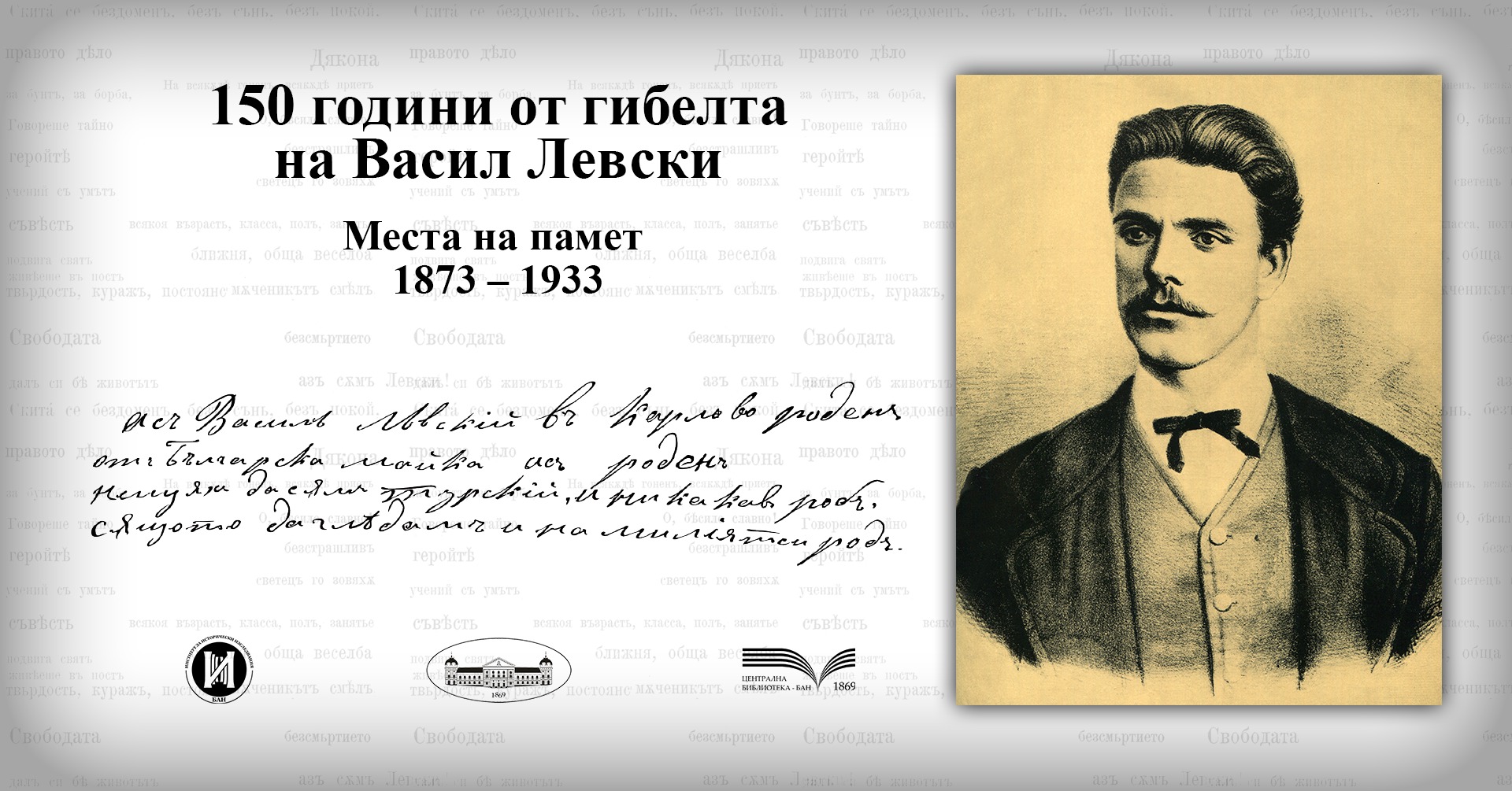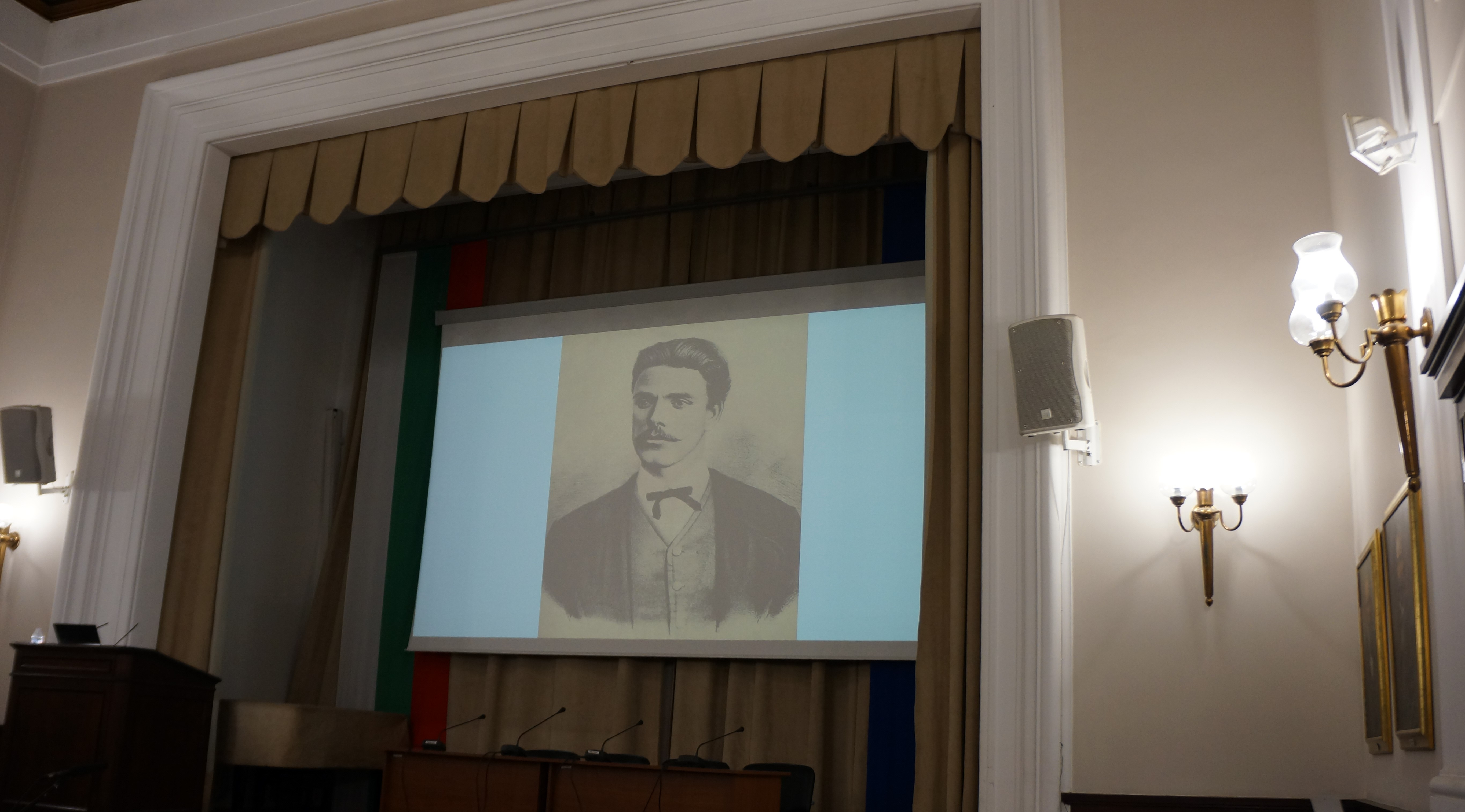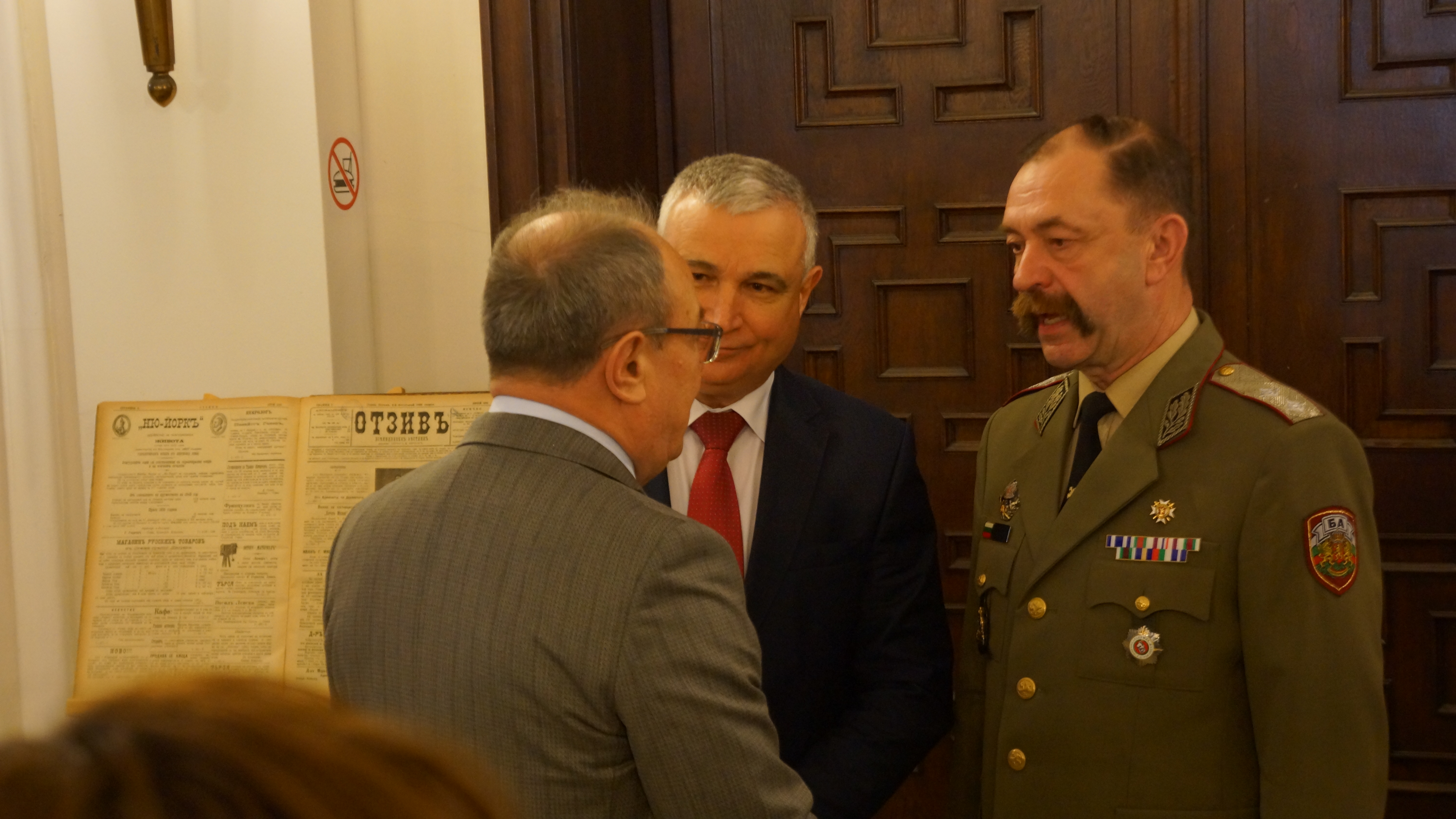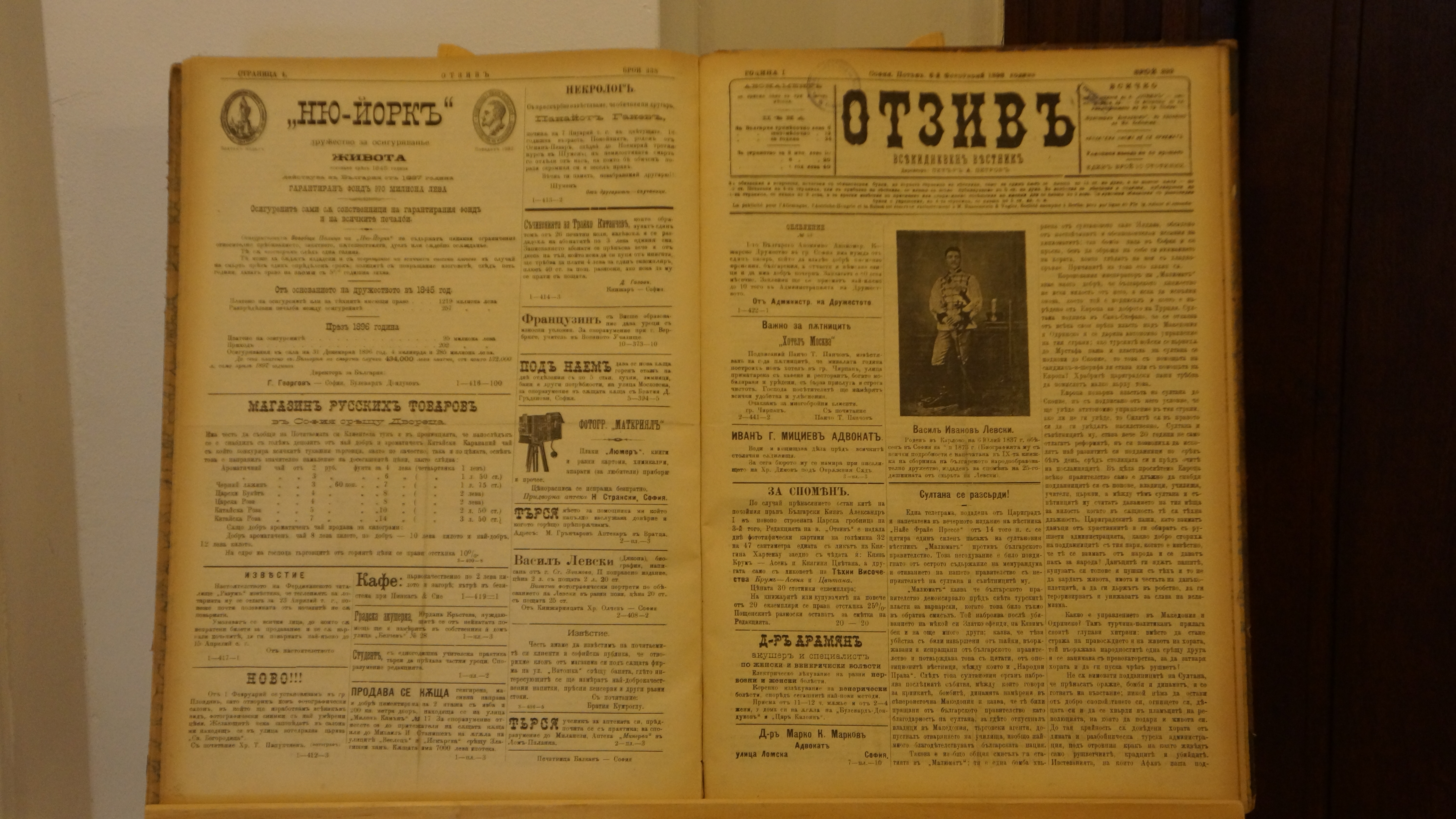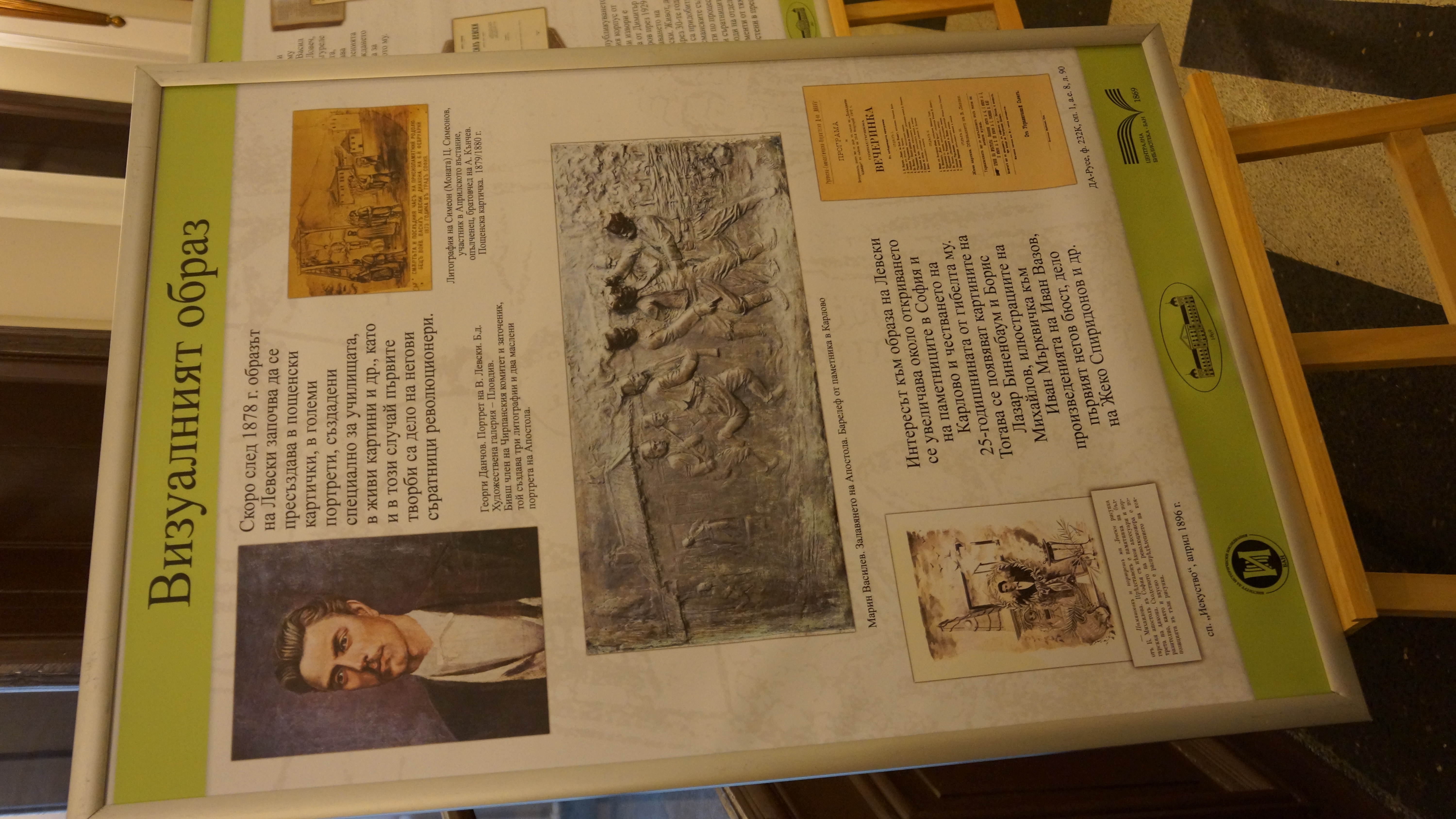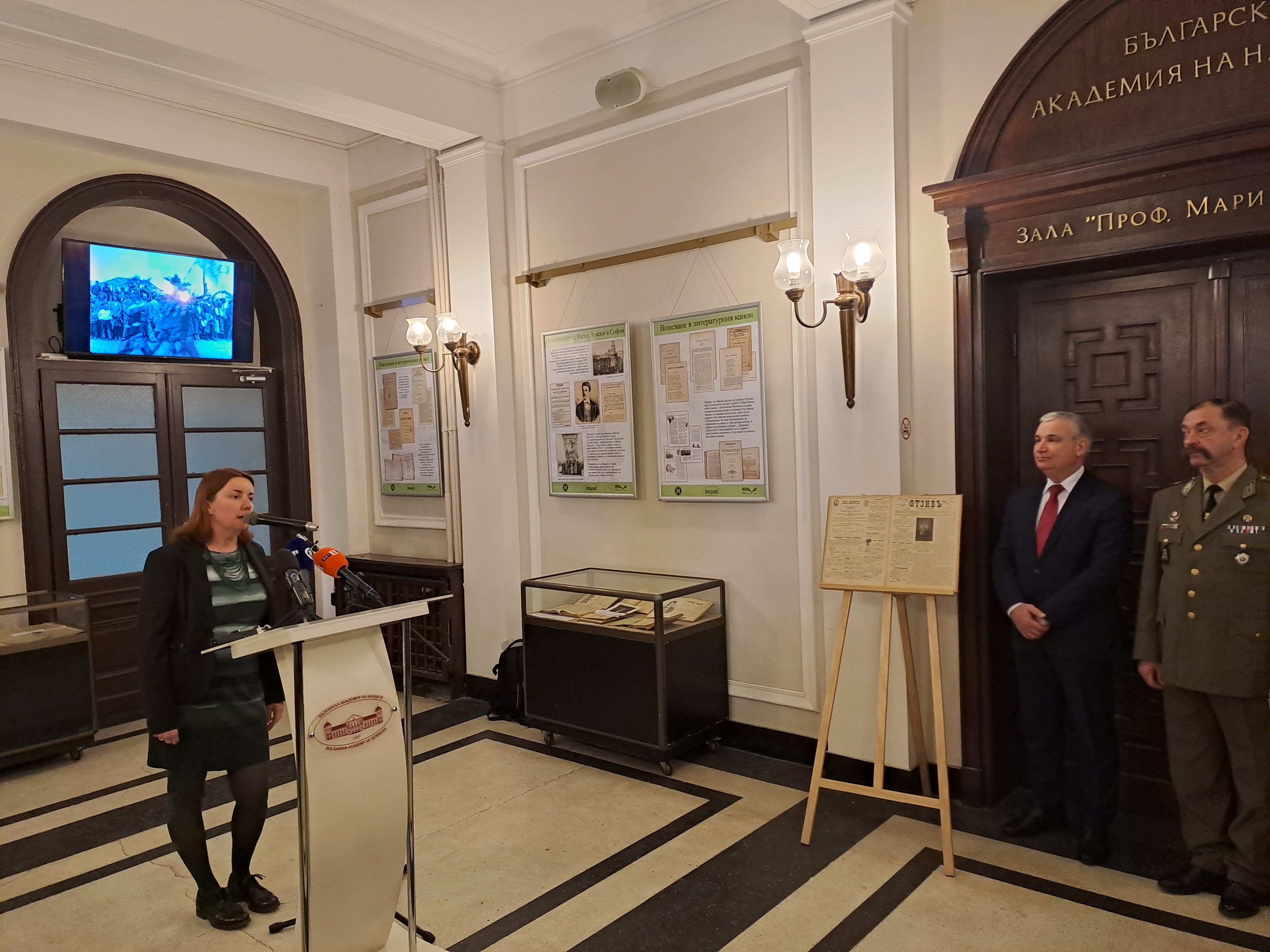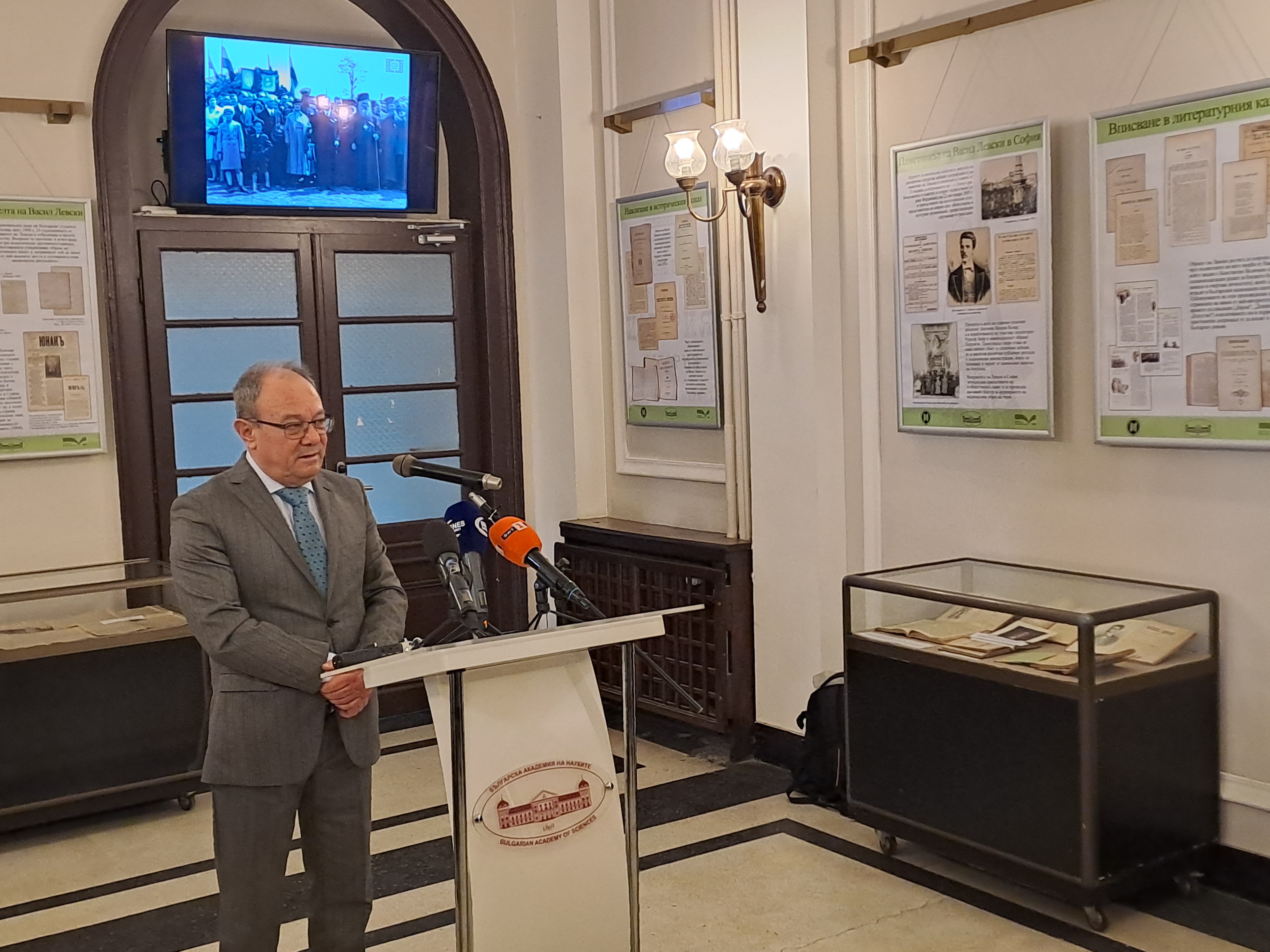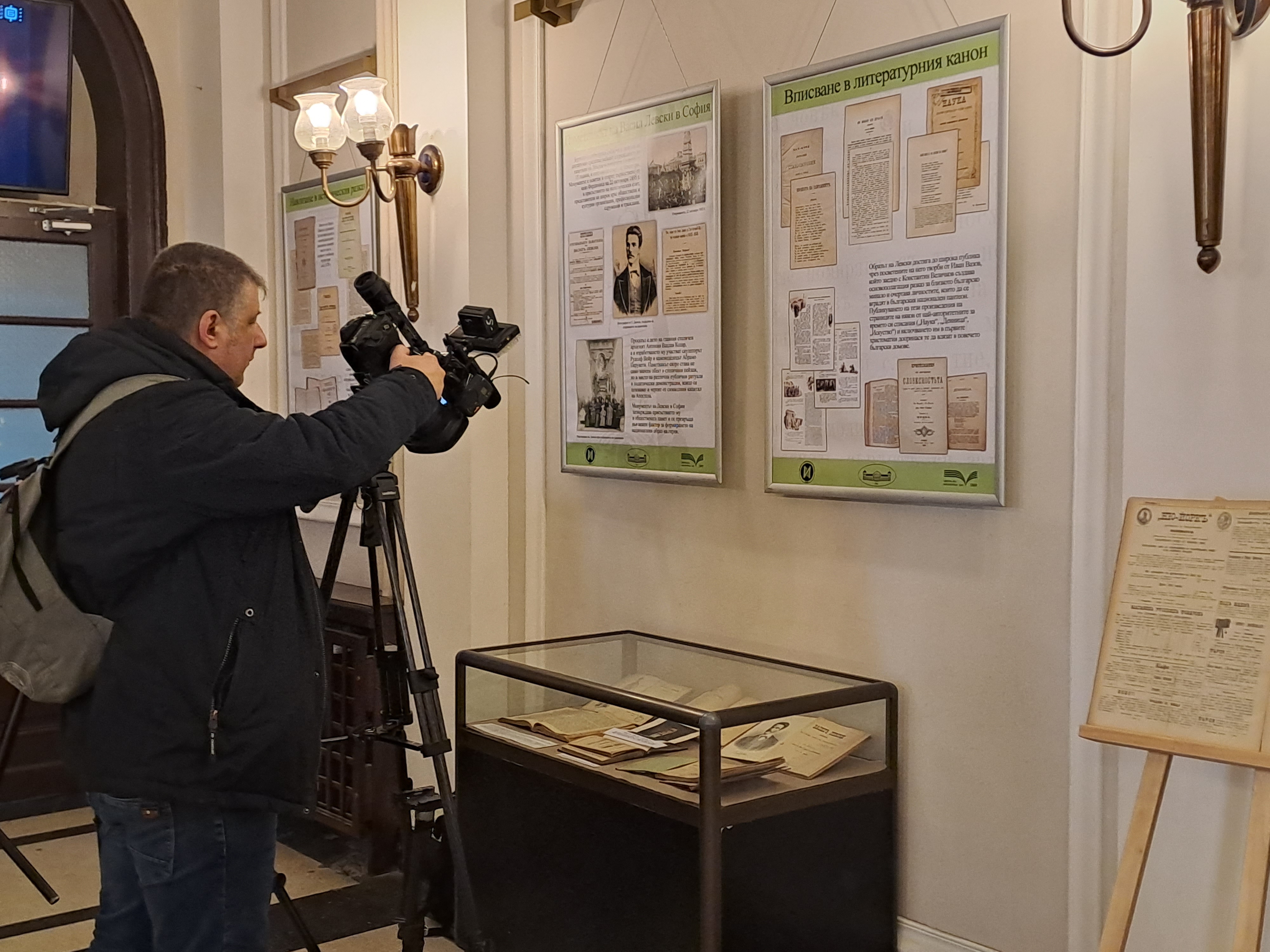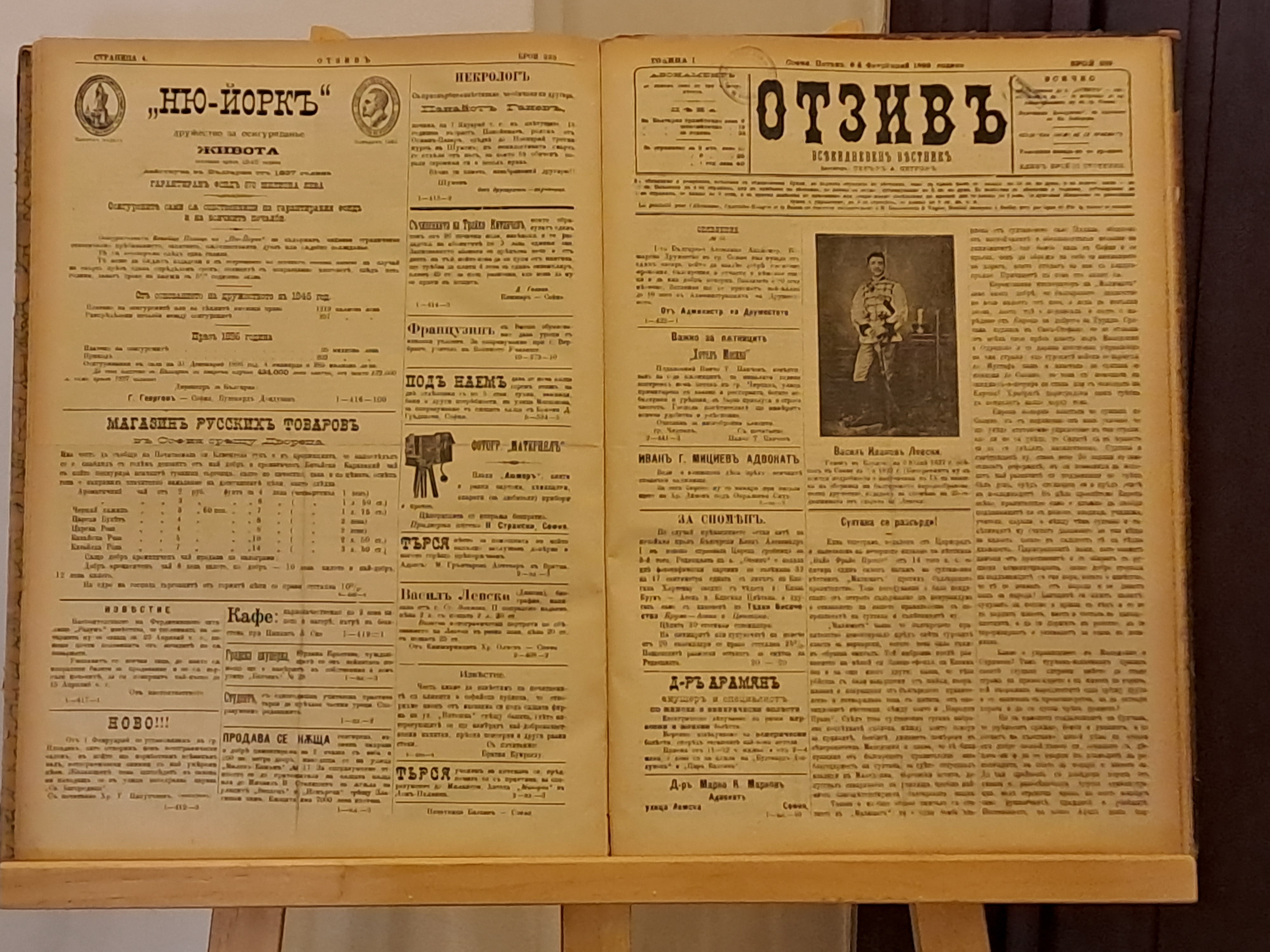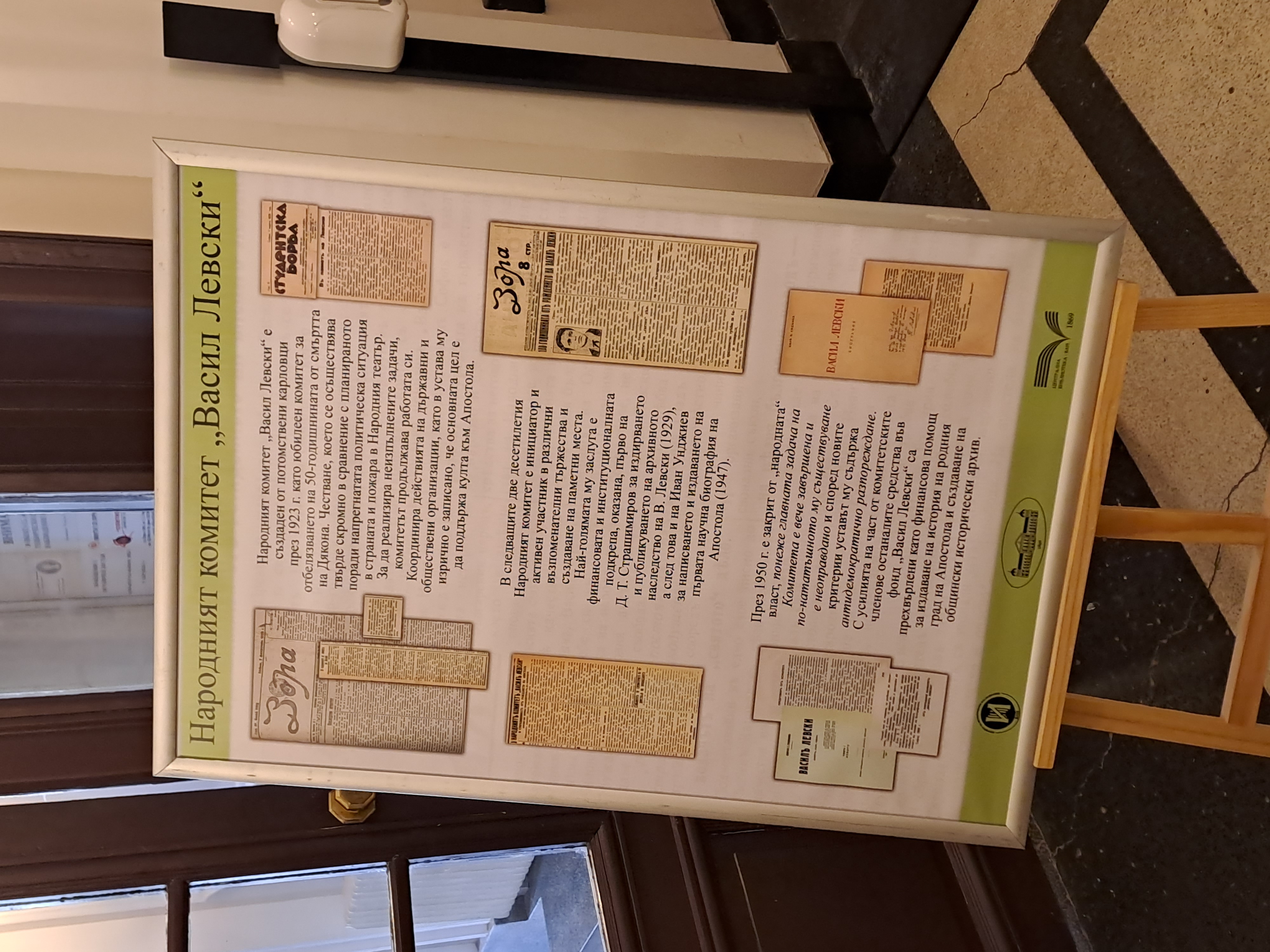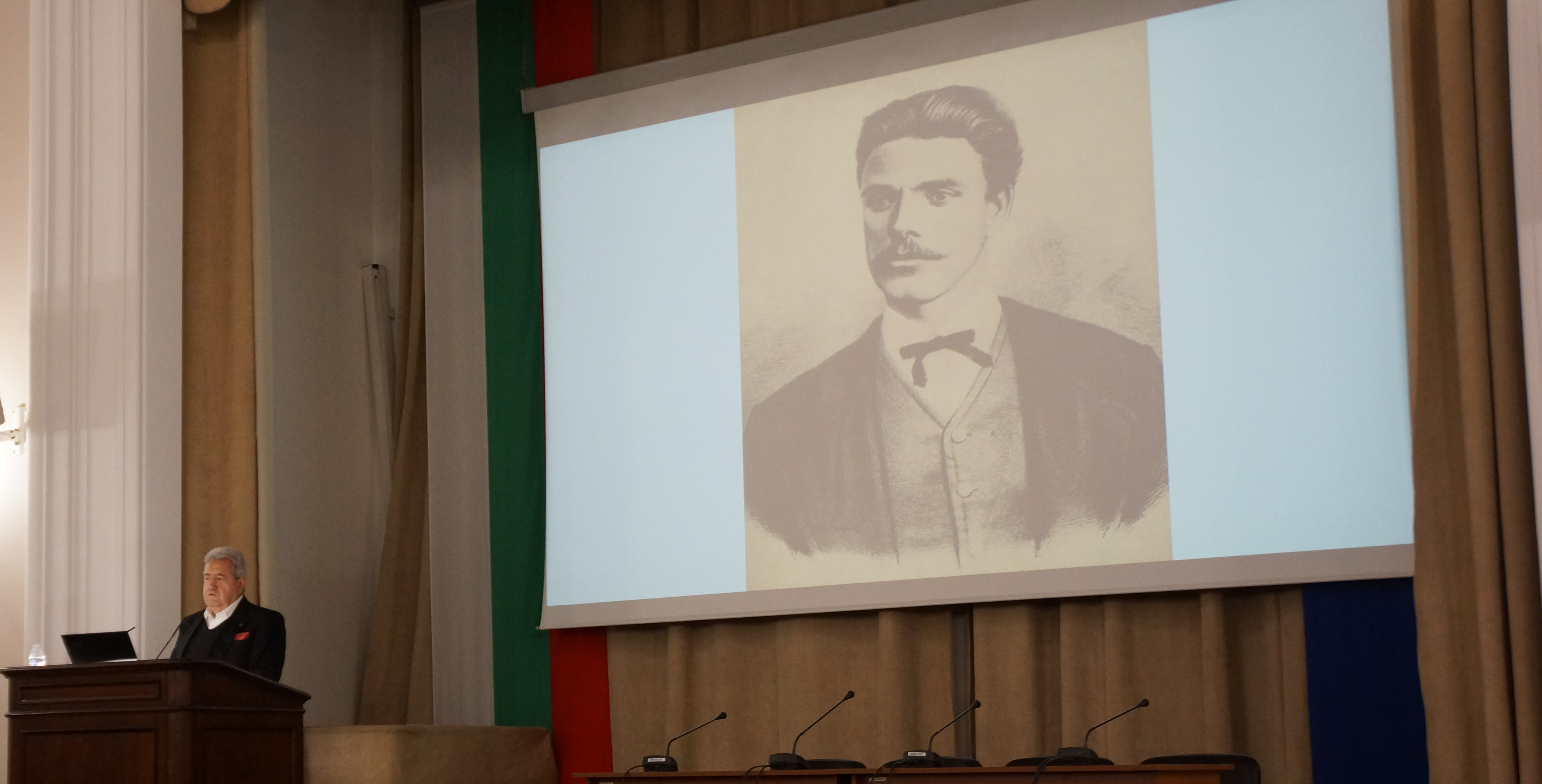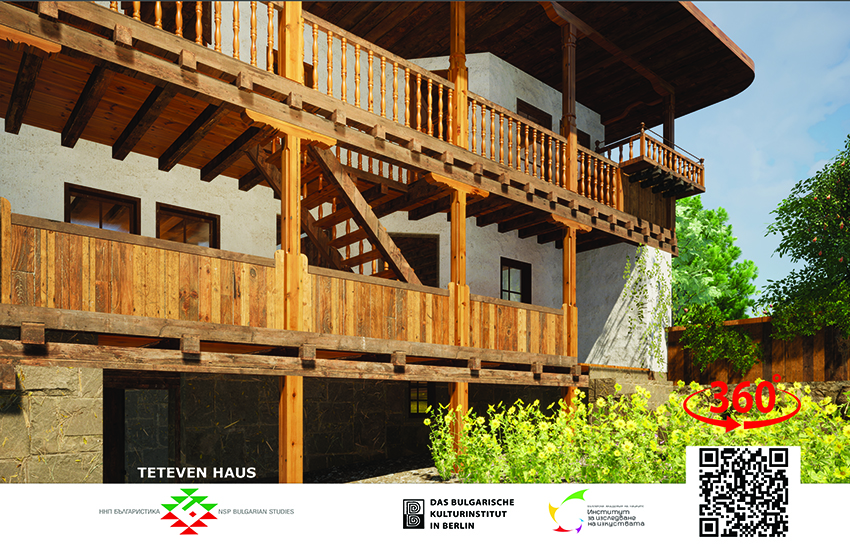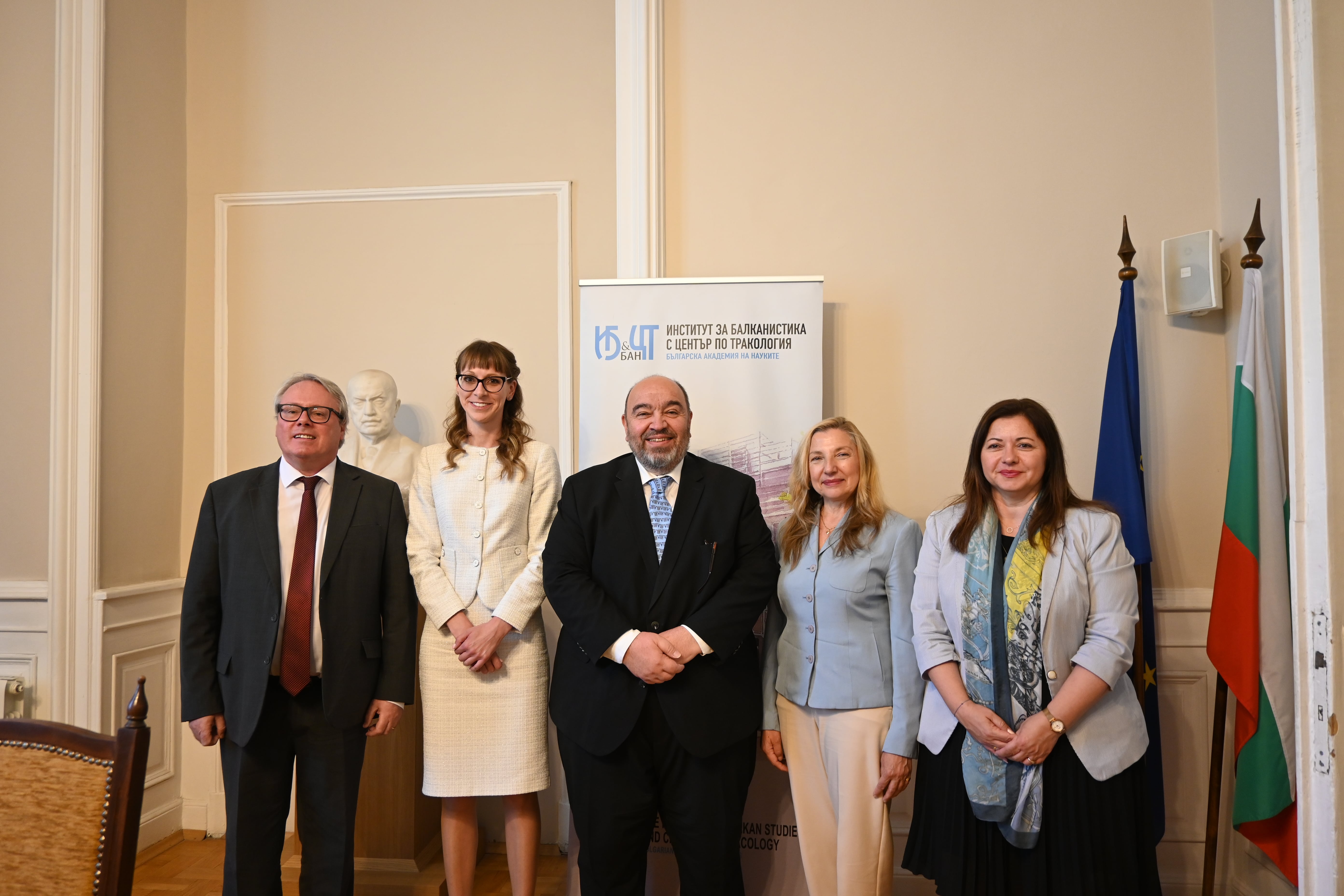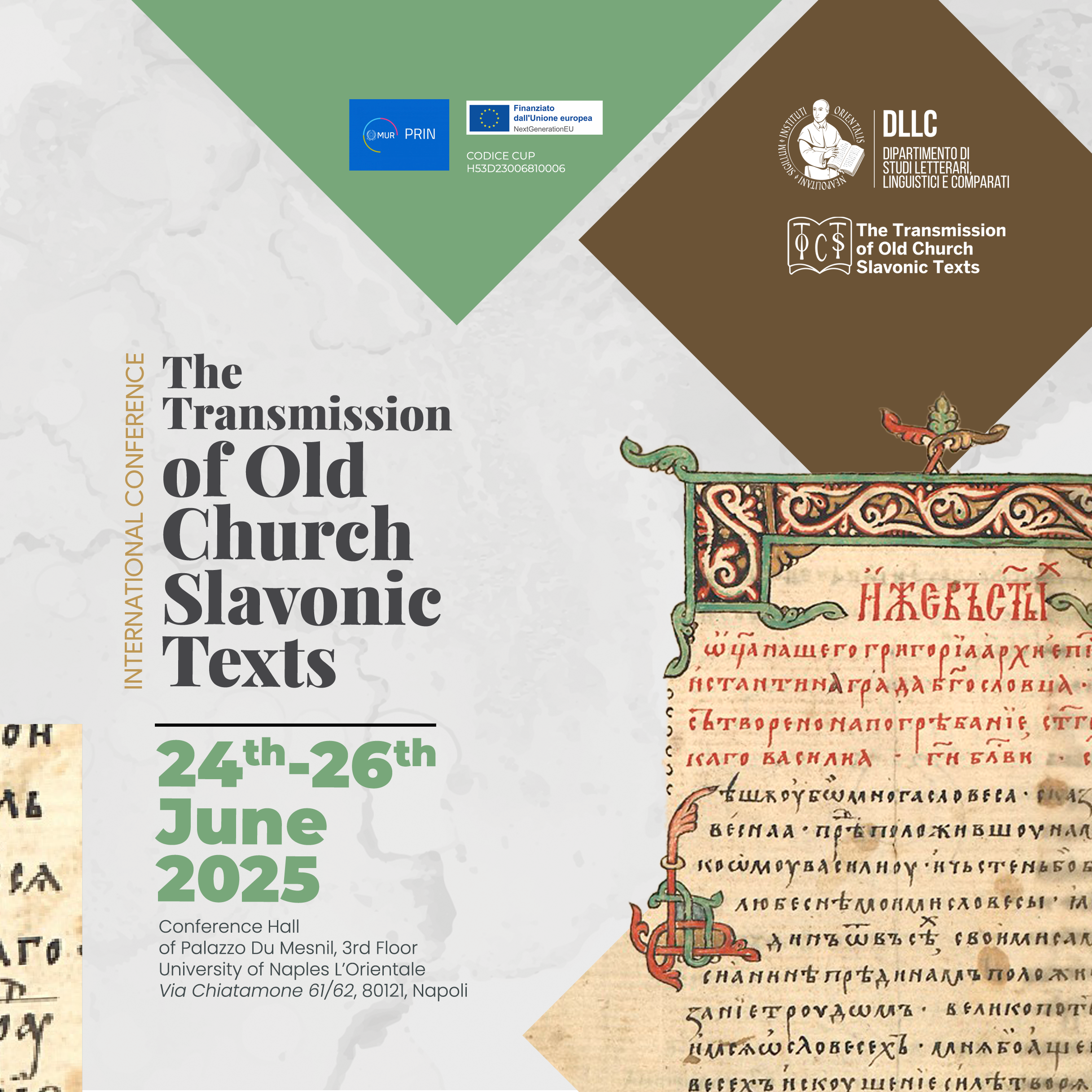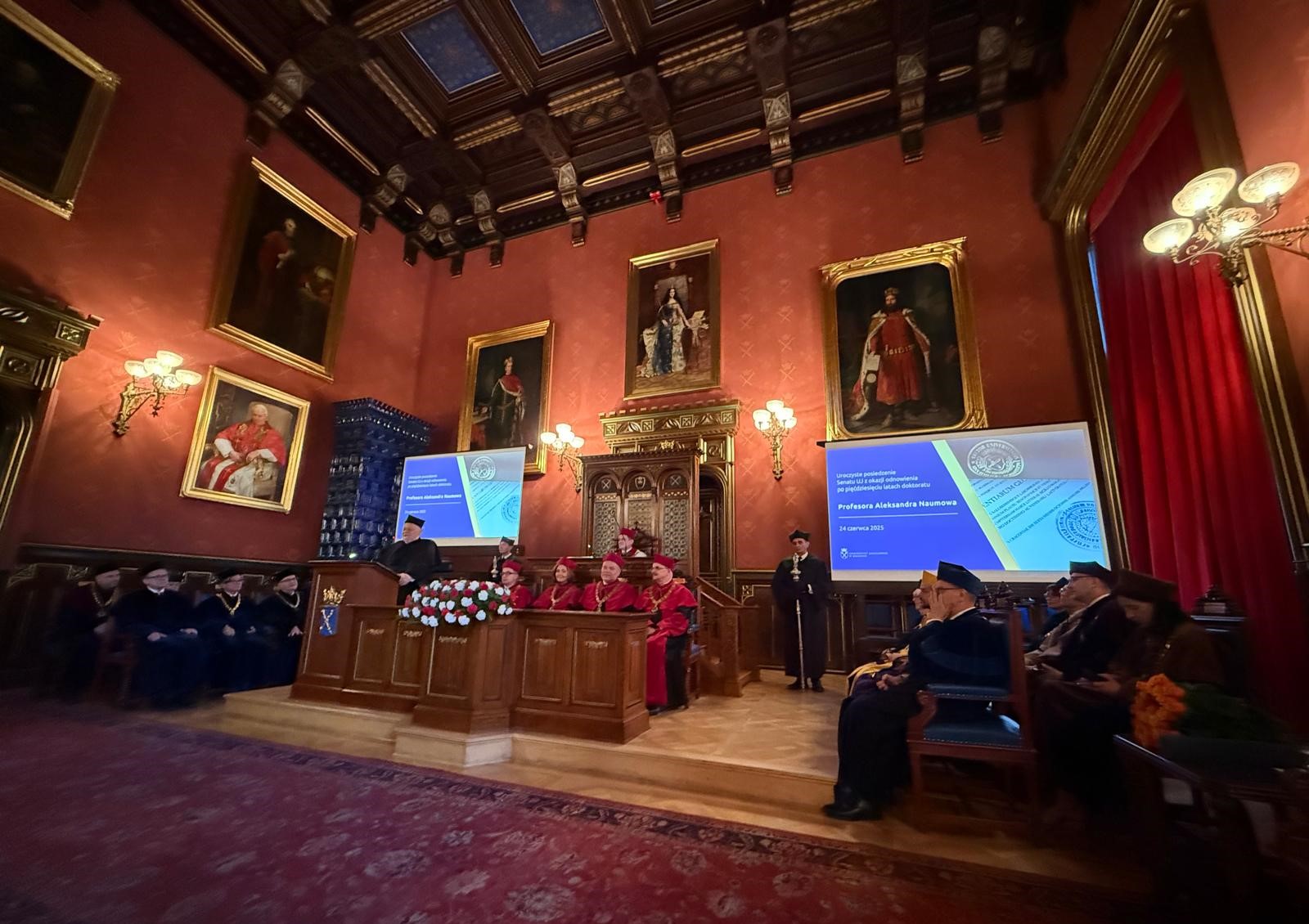Exhibition “150 years since the death of Vasil Levski. Places of Memory (1873 – 1933)” is on display at the Bulgarian Academy of Sciences from 16 to 28 February in the Central Building of BAS (1, 15th November Street). The exhibition has been prepared by the Institute for Historical Studies and the Central Library of the Bulgarian Academy of Sciences and is part of a National Programme adopted by the Council of Ministers of the Republic of Bulgaria to commemorate this significant anniversary. It is a sign of the Academy’s profound respect for the personality and work of one of the brightest persons in our national pantheon. The President of BAS Prof. Julian Revalski, Full Member of the Academy, opened the exhibition. Deputy Minister of Culture Assoc. Prof. Dr. Plamen Slavov, representatives of the scientific community and the media attended the opening.
The Bulgarian Academy of Sciences has been associated with the Apostle since the period of its foundation. It is noteworthy that at the same time as he actively participated in one of the first meetings to establish a revolutionary organization for the liberation of the Bulgarians from Ottoman rule, Vasil Levski attended a meeting at which the Bucharest representatives were authorized to go to Braila to discuss the Statute of the Bulgarian Learned Society. It is a well-known fact that he was one of the first donors to this national work. This gesture has historical significance not so much as an act of material support, but as part of his creed, as a message about the power of speech and literacy in the free future of our nation.
Historical evidence shows that in his tours to villages, towns and neighborhoods, founding revolutionary committees, some of Levski’s most faithful companions were local teachers and clergymen because he was convinced that through knowledge one could realize the meaning of the revolution and what it meant to be free. This conviction was shared not only by him but also by other ideologues of the national liberation movement. It is no coincidence that his associate Todor Peev, forced to cross the Danube because of disclosures during the trial in Sofia, also combined his revolutionary activity with clerical work at the Bulgarian Learned Society and the editing of the “Periodical Journal”.
The exhibition traces how the different dimensions of Levski’s heroic and tragic image were created – from his martyr’s death in 1873 to 1933. Presented are the first short biographical booklet written by Georgi Yakovlev Kirkov, a doyen and full member of the Bulgarian Learned Society, mathematician and founder of the Cartographic Institute; the significant historiographical work of Zahariy Stoyanov and Stoyan Zaimov. The ingenious works of Hristo Botev and Ivan Vazov, which built the canonical image about the work, personality and death of Levski for generations of Bulgarians, making him perhaps the only holy and inviolable to sacrilegious encroachments figure in our national history.
Attention is drawn to emblematic places of memory – from the monument, not far from here, which not only on solemn days provokes us to reflect on how far we have fulfilled the Apostle’s covenants, but also reminds us in moments of responsible and complex national decisions of that enigmatic and warning “People” with the 4 question marks after it. The sacred signs of the ancestral memory are presented – the house museum and the monument in Karlovo but also the rebuilt Kakrina inn – a place for reflection and repentance.
The exhibition’s posters exhibit research, history books, art images, postcards and more. Emphasis is placed on the first national celebration of the Apostle – the 25th anniversary of his hanging (1898) – and the establishment of the “Vasil Levski” People’s Committee (1923) to trace how the memory of Vasil Levski became institutionalized in free Bulgaria.
The aim of the exhibition and of the national scientific conference held on 6 February together with Sofia University “St. Kliment Ohridski” is not only to present new documentary discoveries and in-depth scientific research but also to promote the already established places of memory of the Apostle and thus help the generations coming after us to find their Levski.
The first known documentary film about the Apostle, “The Glorification of Levski” (1931), made by cinematographer Hristo Konstantinov, was shown at the opening of the exhibition, courtesy of the Bulgarian National Film Archive.
A lecture on “The Spiritual Messages of the Apostle of Freedom Vasil Levski” was given by Corr. Mem. Ivan Granitski in “Marin Drinov” Hall. The lecture was part of the academic seminar “Current Problems of Science” of the Assembly of Academicians and Corresponding Members of BAS (AACM).


